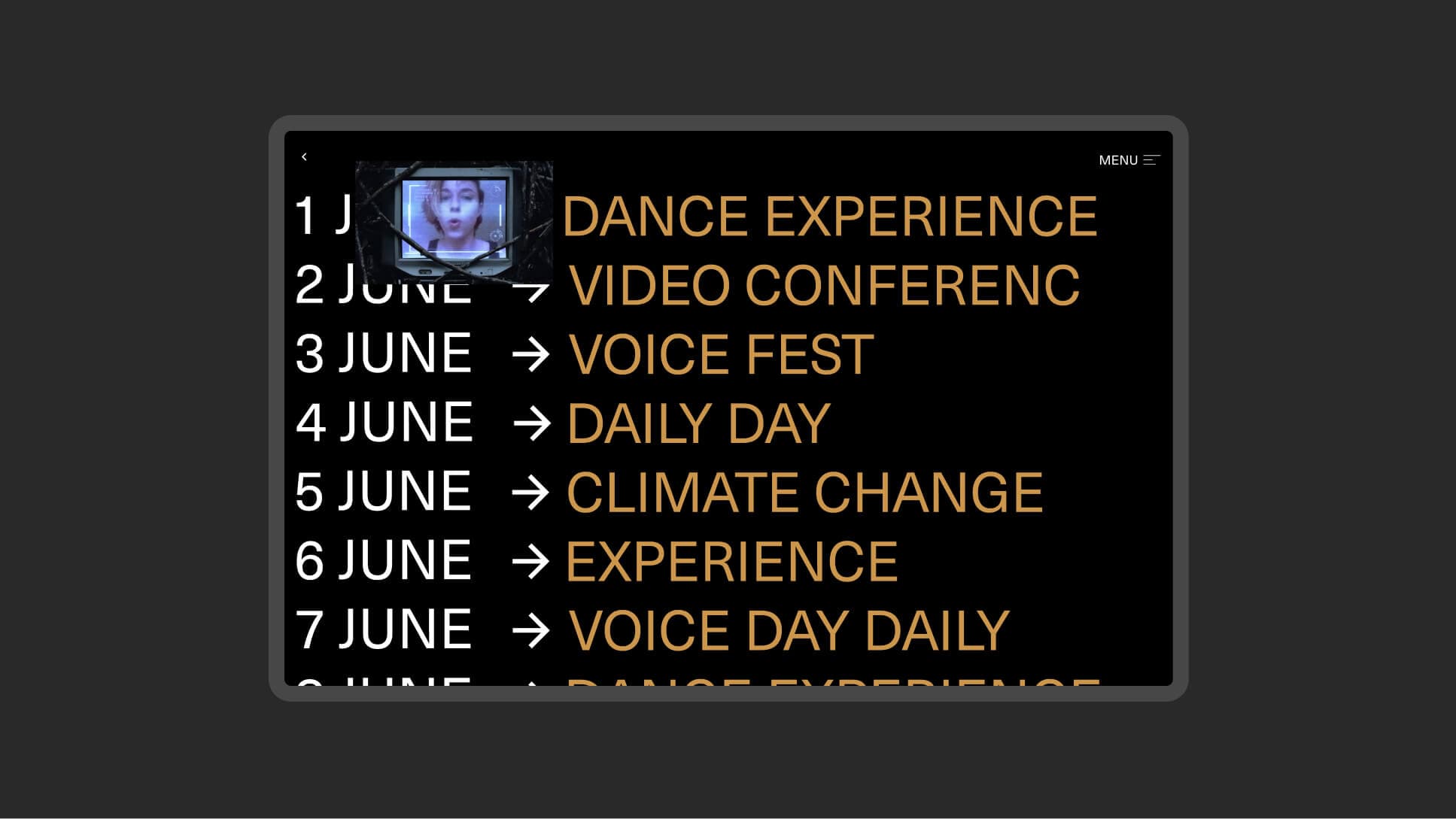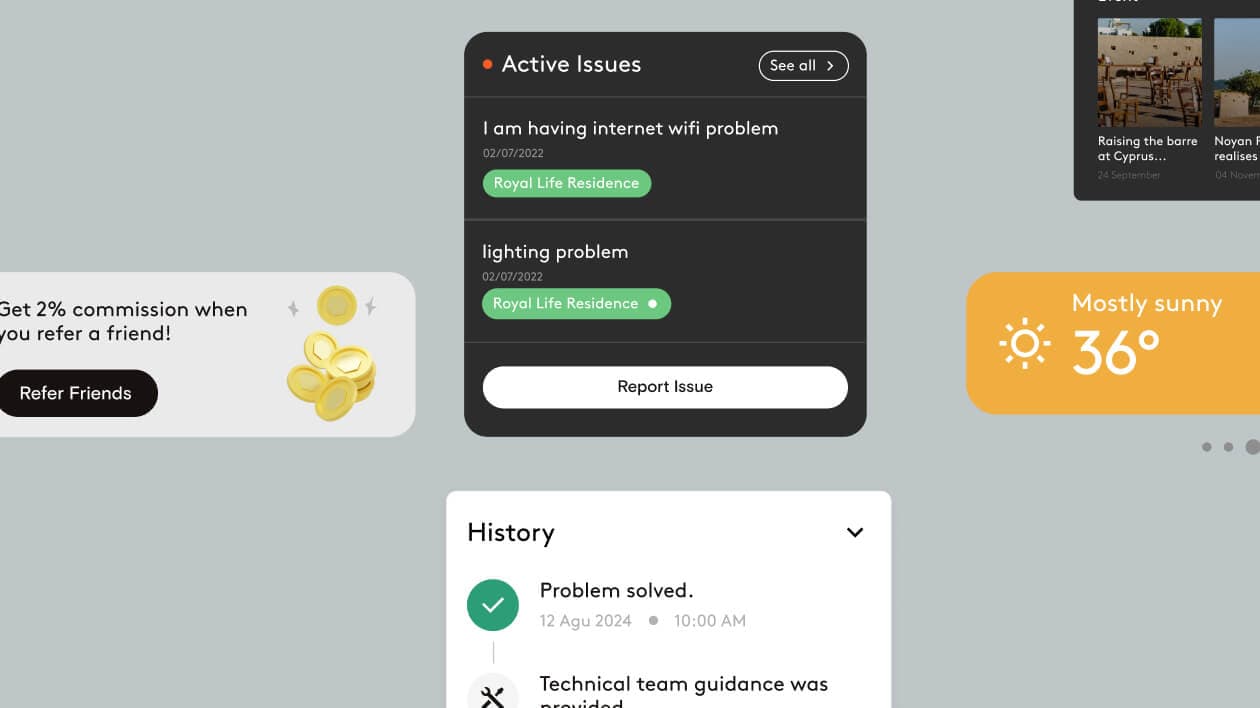Digital Strategy Service
Our digital strategy service helps you define your goals, understand your target audience, and develop a roadmap for success in the digital world. We'll work with you to create a customized strategy that aligns with your business objectives and leverages the latest digital marketing trends.
Developing a Customized Strategy
Once we understand your goals and audience, we'll develop a customized digital strategy that aligns with your business objectives. This strategy will outline the specific channels, tactics, and content that will be used to reach your target audience and achieve your goals.
Implementation and Optimization
We'll work with you to implement your digital strategy and track your progress. We'll make adjustments as needed to ensure that your strategy is effective and delivers the desired results.
Understanding Your Goals
We start by deeply understanding your business goals and target audience. We'll work with you to define your objectives and identify key performance indicators (KPIs) that will measure your success.
Design
We craft meaningful digital experiences that captivate and engage, blending creativity with strategy. From concept to execution, we make your brand stand out.
We shape distinctive brands that resonate, ensuring every element reflects your business’s core values.
Our branding process builds emotional connections, making your brand memorable and positioning it for long-term success in the market.
There are many ways to improve your digital strategy. Here are a few tips: * **Review your goals**: Are your goals still relevant? * **Analyze your data**: What are your key metrics telling you? * **Stay up-to-date on trends**: What are the latest digital marketing trends? * **Experiment**: Try new things and see what works for your business. * **Get feedback**: Ask your customers and employees for feedback on your digital marketing efforts.
Here are some tips for making your digital strategy more effective: * **Use data to inform your decisions**: Don't rely on gut feeling. Use data to make informed decisions about your digital marketing efforts. * **Personalize the user experience**: Tailor your content and messaging to the needs and interests of your target audience. * **Optimize for mobile**: More and more people are using their smartphones and tablets to access the internet, so it's important to optimize your website and content for mobile devices. * **Use social media to build relationships**: Social media is a great way to connect with your audience, build relationships, and drive traffic to your website. * **Don't be afraid to experiment**: Try new things and see what works for your business. * **Get feedback**: Ask your customers and employees for feedback on your digital marketing efforts.
There are many ways to measure the success of your digital strategy. Some common metrics include: * **Website traffic**: How many people are visiting your website? * **Leads**: How many people are submitting their contact information on your website? * **Conversions**: How many people are taking the desired action on your website, such as making a purchase or signing up for a newsletter? * **Social media engagement**: How many people are interacting with your social media content? * **Brand mentions**: How many people are talking about your brand online? * **Return on investment (ROI)**: How much money are you making from your digital marketing efforts?
Here are some tips for overcoming digital strategy challenges: * **Stay up-to-date on trends**: Read industry blogs and articles, attend conferences, and follow thought leaders on social media. * **Set realistic goals**: Don't try to do too much at once. Start with a few key goals and focus on achieving them. * **Track your results**: Use analytics tools to track your progress and identify areas where you can improve. * **Get creative**: Don't be afraid to experiment with new ideas and strategies. * **Seek help**: If you're struggling, don't be afraid to seek help from a digital marketing expert.
Creating a digital strategy can be a complex process, but it doesn't have to be overwhelming. Here are some steps you can follow: 1. **Define your goals**: What do you want to achieve with your digital strategy? 2. **Identify your target audience**: Who are you trying to reach with your digital marketing efforts? 3. **Conduct a competitive analysis**: What are your competitors doing? 4. **Choose your channels**: Which digital channels will you use to reach your target audience? 5. **Create a content calendar**: What type of content will you create and share? 6. **Set up tracking and measurement**: How will you measure the success of your digital strategy?
The time it takes to develop a digital strategy varies depending on the complexity of your business and the scope of your strategy. However, it's generally a good idea to allow at least a few weeks to develop a comprehensive strategy.
The cost of a digital strategy varies depending on the size and scope of your business. You can choose to develop your own strategy in-house, or you can hire a digital marketing agency to help you. If you're working with an agency, you can expect to pay anywhere from a few thousand dollars to tens of thousands of dollars, depending on the agency's experience and the complexity of your project.
Some common digital strategy challenges include: * **Keeping up with the latest trends**: The digital landscape is constantly evolving, so it can be difficult to keep up with the latest trends. * **Measuring results**: It can be challenging to measure the success of your digital marketing efforts. * **Budget constraints**: Digital marketing can be expensive, so it can be difficult to get the budget you need. * **Competition**: There is a lot of competition in the digital world, so it can be difficult to stand out from the crowd. * **Lack of resources**: You may not have the time, skills, or resources to develop and implement a successful digital strategy.
Here are some common digital strategy mistakes to avoid: * **Not defining your goals**: If you don't know what you want to achieve, you're unlikely to succeed. * **Not understanding your target audience**: If you don't know who you're trying to reach, you're unlikely to create content that resonates with them. * **Not using the right channels**: You need to choose the right channels to reach your target audience. * **Not creating engaging content**: Your content needs to be interesting and valuable to your audience. * **Not tracking your results**: You need to track your results to see what's working and what's not. * **Not being patient**: Building a successful digital strategy takes time and effort.
Here are some digital strategy best practices: * **Define your goals**: What do you want to achieve with your digital strategy? * **Understand your target audience**: Who are you trying to reach with your digital marketing efforts? * **Conduct a competitive analysis**: What are your competitors doing? * **Choose the right channels**: Which digital channels will you use to reach your target audience? * **Create engaging content**: Your content needs to be interesting and valuable to your audience. * **Track your results**: You need to track your results to see what's working and what's not. * **Be patient**: Building a successful digital strategy takes time and effort.
Here are some digital strategy resources for small businesses: * **Small Business Administration (SBA)**: The SBA offers a variety of resources for small businesses, including information on digital marketing. * **SCORE**: SCORE is a non-profit organization that provides free mentoring and training to small businesses. * **Local chambers of commerce**: Many local chambers of commerce offer workshops and events on digital marketing. * **Online courses**: There are many online courses available on digital strategy, such as the Google Digital Garage and the Coursera Digital Marketing Specialization.
Here are some examples of successful digital strategies: * **Airbnb**: Airbnb's digital strategy is focused on creating a strong brand identity, building a loyal community of users, and using data to personalize the user experience. * **Netflix**: Netflix's digital strategy is focused on providing a seamless streaming experience, offering a wide range of content, and using data to recommend movies and shows to users. * **Amazon**: Amazon's digital strategy is focused on offering a wide selection of products, providing fast and convenient delivery, and using data to personalize the shopping experience.
The digital landscape is constantly evolving, so it's important to stay up-to-date on the latest trends. Here are some of the latest digital strategy trends: * **Artificial intelligence (AI)**: AI is being used to automate tasks, personalize the user experience, and improve customer service. * **Voice search**: Voice search is becoming increasingly popular, so it's important to optimize your website and content for voice search. * **Video marketing**: Video marketing is a powerful way to engage with your audience and tell your story. * **Social media marketing**: Social media is a great way to connect with your audience, build relationships, and drive traffic to your website. * **Mobile marketing**: Mobile marketing is becoming increasingly important, so it's important to optimize your website and content for mobile devices.
There are many resources available for learning more about digital strategy. Some popular resources include: * **Books**: There are many books available on digital strategy, such as "Digital Strategy: A Practical Guide" by David J. Thomas. * **Websites**: There are many websites that offer articles, blog posts, and other resources on digital strategy, such as the HubSpot blog and the Search Engine Journal. * **Online courses**: There are many online courses available on digital strategy, such as the Google Digital Garage and the Coursera Digital Marketing Specialization. * **Conferences**: There are many conferences that focus on digital strategy, such as the Digital Marketing World Forum and the Search Marketing Expo.
Here are some tips for developing a successful digital strategy: * **Start with your goals**: What do you want to achieve with your digital strategy? * **Understand your target audience**: Who are you trying to reach with your digital marketing efforts? * **Conduct a competitive analysis**: What are your competitors doing? * **Choose the right channels**: Which digital channels will you use to reach your target audience? * **Create engaging content**: Your content needs to be interesting and valuable to your audience. * **Track your results**: You need to track your results to see what's working and what's not. * **Be patient**: Building a successful digital strategy takes time and effort.
There are many tools that can help you with your digital strategy. Some popular tools include: * **Google Analytics**: A free tool that provides detailed insights into your website traffic. * **HubSpot**: A marketing automation platform that helps you manage your marketing campaigns, track your results, and improve your ROI. * **SEMrush**: A tool that helps you with keyword research, competitor analysis, and SEO. * **Buffer**: A social media management tool that helps you schedule and publish your social media posts. * **Canva**: A graphic design tool that helps you create visually appealing content for your website and social media.
There are many benefits to having a digital strategy, including: * Increased brand awareness and visibility * Improved customer engagement and loyalty * Increased website traffic and leads * Higher conversion rates * More efficient use of marketing resources * Better measurement and tracking of results
A digital strategy typically includes the following elements: * **Target audience**: Who are you trying to reach with your digital marketing efforts? * **Goals**: What do you want to achieve with your digital strategy? * **Channels**: Which digital channels will you use to reach your target audience? * **Content**: What type of content will you create and share? * **Metrics**: How will you measure the success of your digital strategy?
A digital strategy is a comprehensive plan that outlines how you will use digital channels to achieve your business goals. It includes everything from your website and social media presence to your content marketing and email campaigns. A well-defined digital strategy helps you stay organized, prioritize your efforts, and measure your progress.
A digital strategy is essential for any business that wants to succeed in today's digital world. It helps you stay ahead of the competition, reach new customers, and grow your business. Without a strategy, you're essentially flying blind, which can lead to wasted time, effort, and money.

















